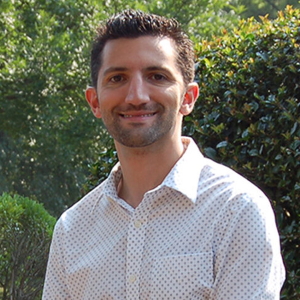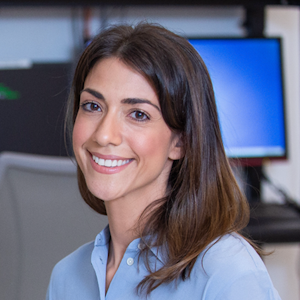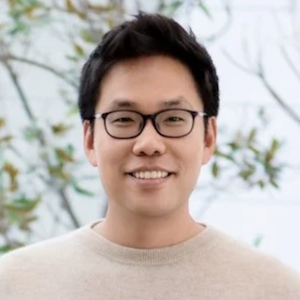SANS 2026
April 15 – 18, 2026
San Diego, California
Join us for the SANS 2026 Annual Meeting, an exciting interdisciplinary conference showcasing diverse topics and viewpoints on social and affective neuroscience. Our symposia will cover stimulating and timely topics representing multiple perspectives on affective neuroscience.
We expect over 300 attendees, from students and post-docs to faculty and researchers!
Conference Registration
Learn more about registration — special rates, what’s included & deadlines.
Destination
Discover La Jolla, known as the Jewel by the Sea, the venue, and how to get there!
Accommodation
Book at the San Diego Marriott La Jolla and benefit from a discounted rate.
Join us for SANS 2026

Dominic Fareri
President
Social and Affective Neuroscience Society (SANS)
Are you curious about how we learn about others and form social connections? Or about how emotional dynamics shape our impressions of and interactions with others? Maybe instead you’re wondering about how AI will shape the ways in which we communicate, work and shape our science.
The Social and Affective Neuroscience Society (SANS) is comprised of over 400 scientists across the globe focused on understanding the psychological and neural mechanisms that support social interactions, emotional function, decision-making and more, as well as how such mechanisms can serve as protective factors in mental health overall well-being. Our members utilize multidisciplinary approaches including behavioral, psychophysiological and neuroimaging methods, often in conjunction with computational modeling and machine learning tools to investigate these ideas.
On behalf of our community, I invite you to join us for our annual meeting in 2026, which will be held from April 15-18 at the San Diego Marriott La Jolla. We know that many within the scientific community have and will continue to experience difficulties in the coming year. During these times of uncertainty, it is critical that we continue to come together as scientists to not only share our work with each other but to brainstorm ways in which we can impress the importance what we do to the public. We are committed to finding ways to broaden and support participation now more than ever in order to support our strong and continually thriving community.
Your attendance at our meeting and active participation in our community is instrumental to both the continued success of SANS and our collective goal of further developing a mechanistic understanding of how brain function instantiates social and emotional well-being.
Looking forward to seeing you in sunny San Diego!
Key Dates - San Diego, 2026
Abstracts:
September 18, 2025 – Symposia submission Open
October 16, 2025 – Society Awards nomination Open
November 24, 2025 – Symposia submission -EXTENDED
November 25, 2025 – Abstracts and Travel Awards Open – UPDATED
December 15, 2025 – Symposia acceptance notification Sent – UPDATED
December 15, 2025 – Society Awards nomination Close
January 6, 2026 – Last day to confirm Symposium – UPDATED
January 12, 2026 – Abstracts and Travel Awards Close – UPDATED
January 30, 2026 – Abstracts acceptance notifications Sent
February 20, 2026 – Last Day to confirm Abstracts participation
Registration:
November 7, 2025 – Registration Opens
March 9, 2026 – Early Bird Registration Deadline
March 30, 2026 – Regular Registration Deadline
Room Booking:
March 17, 2026- Booking cut-off date
Conference:
April 15, 2026 – Conference Begins
April 18, 2026 – Conference Ends
Program Co-Chairs

Candace Raio
New York University
Candace Raio is an Assistant Professor of Psychiatry at New York University Grossman School of Medicine where she serves as PI and Director of the Stress and Affective Neuroscience (SAN) Lab and Co-Director of NYUGSoM’s Neuroimaging Core. She received her PhD in experimental psychology from NYU’s Department of Psychology and completed her postdoctoral training in decision neuroscience at NYU’s Neuroscience Institute. Her work focuses on how stress exposure affects the cognitive, neural and computational mechanisms that support affective regulation and decision-making using a multimodal approach that includes psychophysiology, neuroendocrinology, neuroimaging and computational modeling. The overarching goal of her work is to inform treatment for stress-related psychiatric disorders and behaviors in which stress serves as a key precipitating factor.

Justin Minue Kim
Sungkyunkwan University
Justin Minue Kim is an Associate Professor in the Department of Psychology at Sungkyunkwan University in Seoul, South Korea. He is the director of the Human Affective Neuroscience Laboratory and a faculty member of the Center for Neuroscience Imaging Research at the Institute for Basic Science. He received his Ph.D. in Psychological and Brain Sciences from Dartmouth College and completed his postdoctoral training at Duke University. His research is dedicated to understanding the psychological and neurobiological mechanisms that shape how we experience our own emotions and evaluate the emotions of others. Ongoing research in his lab examines how different dimensions of affective information are encoded, manipulated, and integrated in the brain, as well as how systematic individual differences in these processes manifest at behavioral and neural levels – with particular attention to their implications for mental health.
